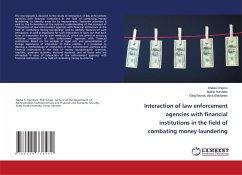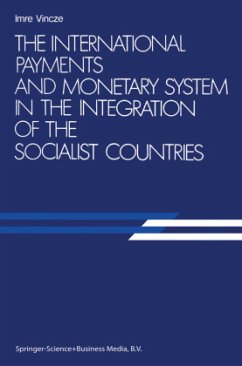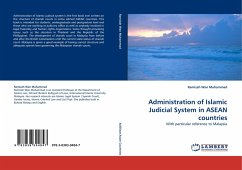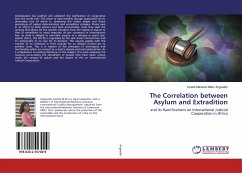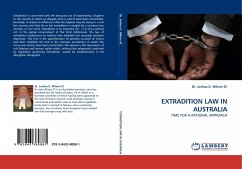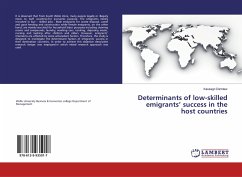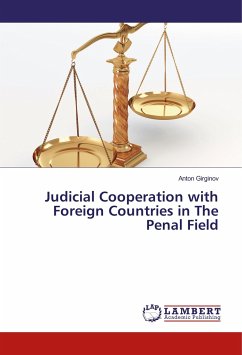
Judicial Cooperation with Foreign Countries in The Penal Field
Versandkostenfrei!
Versandfertig in 6-10 Tagen
30,99 €
inkl. MwSt.

PAYBACK Punkte
15 °P sammeln!
International judicial cooperation in criminal matters includes international/mutual legal assistance in criminal matters (letters rogatory, requests for the delivery of procedural documents abroad and requests for the purpose of confiscation/forfeiture) as well as other modalities of cooperation: extradition, transfer of criminal proceedings, recognition and enforcement of foreign criminal judgment, transfer of sentenced persons (prisoners, actually). International judicial cooperation is designed to serve domestic criminal and/or execution (enforcement) proceedings in the requesting country....
International judicial cooperation in criminal matters includes international/mutual legal assistance in criminal matters (letters rogatory, requests for the delivery of procedural documents abroad and requests for the purpose of confiscation/forfeiture) as well as other modalities of cooperation: extradition, transfer of criminal proceedings, recognition and enforcement of foreign criminal judgment, transfer of sentenced persons (prisoners, actually). International judicial cooperation is designed to serve domestic criminal and/or execution (enforcement) proceedings in the requesting country. Nevertheless, this cooperation is neither any part of these proceedings nor even similar to them. It has rather different peculiarities and principles, such as opportunity, proportionality, sovereignty, reciprocity, specialty, etc. This is why knowledge of criminal procedure itself is never sufficient to understand well international judicial cooperation in criminal matters. A lot of additional efforts are necessary to reach this goal, given the potential need to cooperate with any of the almost 200 countries in the world.




